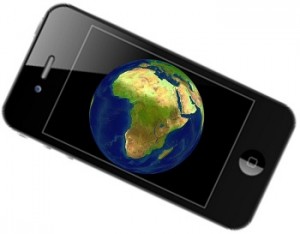As a standalone company, PayPal is adopting a mobile-first strategy
PayPal is now a standalone company being traded on the Nasdaq and it has adopted a mobile-first strategy. The company has come to establish a very prominent position in the mobile commerce space, where it has become one of the more influential entities therein. As the company has now become separate from its former owner eBay, PayPal will adopt a greater focus on the mobile sector. This focus may further increase the company’s standing in the mobile commerce market.
PayPal looks to expand its existing mobile solutions
According to PayPal CEO Dan Schulman, PayPal is set to become a mobile-first platform through the development of new mobile products. The company will also work to enhance its existing mobile solutions, which include those developed by Venmo, Braintree, and Xoom. Braintree, in particular, is expected to become a more prominent tool for PayPal, due to its expertise in the mobile commerce space.
Improving mobile platforms will allow PayPal to engage more consumers
 PayPal also intends to drive higher levels of engagement through the mobile space. Part of the company’s strategy involves the introduction of new services that will be used on a variety of mobile platforms. PayPal will be expanding its one-click purchasing feature, called One Touch. The company is also working on making its payment processing faster. PayPal has already succeeding in increasing this processing speed by 50%.
PayPal also intends to drive higher levels of engagement through the mobile space. Part of the company’s strategy involves the introduction of new services that will be used on a variety of mobile platforms. PayPal will be expanding its one-click purchasing feature, called One Touch. The company is also working on making its payment processing faster. PayPal has already succeeding in increasing this processing speed by 50%.
In-store mobile commerce is a new opportunity for PayPal
The company is also looking to capitalize on in-store mobile payments. These payments are becoming more popular among retailers that are looking for new ways of effectively engaging mobile consumers. In-store mobile payments may be a good opportunity for PayPal to expand beyond the digital space, as it can offer retailers with an effective way to participate in the mobile commerce sector. Several retailers have already embraced PayPal as a way to allow consumers to make purchases directly from their mobile devices, rather than having to use traditional forms of commerce, such as physical currency and credit cards.
The latest tech is becoming increasingly promising throughout the continent as other infrastructures lag.
The majority of Africa is faced with considerable struggles in terms of its internet coverage, electricity, governance, and even poverty, but when it comes to mobile technology, most of the continent is experiencing massive growth.
The latest types of mobile tech have proven to be extremely promising for the current African environment.
The whole region is proving to be a location that is offering a tremendous amount of opportunity for mobile technology innovation. This is particularly true when it comes to categories such as m-commerce and mobile payments. Entrepreneurs, particularly those in younger age brackets – are discovering new ways to be able to benefit from this type of tech, as they help others and make a profit at the same time.
The lives of millions of people in Africa are being changed in a meaningful way due to mobile technology.
 In the category of mobile payments and banking, the number of players in the market is starting to grow, as companies start to recognize that there is a massive population that has previously be unbanked and that can be effectively served through their mobile phones.
In the category of mobile payments and banking, the number of players in the market is starting to grow, as companies start to recognize that there is a massive population that has previously be unbanked and that can be effectively served through their mobile phones.
Some of the largest success stories in the mobile sector in Africa include payment systems organizations such as Cellulant, as well as others like M-Pesa. These have made it possible for Africans to skip over the traditional shortfalls of their internet and electricity infrastructure in order to dive right into accounts that are based on the devices that the majority of them already have – cell phones.
The impact has been a large and measurable one. The economies of many countries – such as Kenya, for example – have continued to be mainly cash focused, but now include a sizeable participation in mobile payments, as well. Previously, credit and debit cards had been used by only the smallest sliver of people, leaving only cash. Now, cash is losing ground to mobile technology at an ever increasing rate. This has been helpful not only to consumers, but also to businesses, education systems, and other organizations of virtually every size.
 PayPal also intends to drive higher levels of engagement through the mobile space. Part of the company’s strategy involves the introduction of new services that will be used on a variety of mobile platforms. PayPal will be expanding its one-click purchasing feature, called One Touch. The company is also working on making its payment processing faster. PayPal has already succeeding in increasing this processing speed by 50%.
PayPal also intends to drive higher levels of engagement through the mobile space. Part of the company’s strategy involves the introduction of new services that will be used on a variety of mobile platforms. PayPal will be expanding its one-click purchasing feature, called One Touch. The company is also working on making its payment processing faster. PayPal has already succeeding in increasing this processing speed by 50%.
 In the category of mobile payments and banking, the number of players in the market is starting to grow, as companies start to recognize that there is a massive population that has previously be unbanked and that can be effectively served through their mobile phones.
In the category of mobile payments and banking, the number of players in the market is starting to grow, as companies start to recognize that there is a massive population that has previously be unbanked and that can be effectively served through their mobile phones.